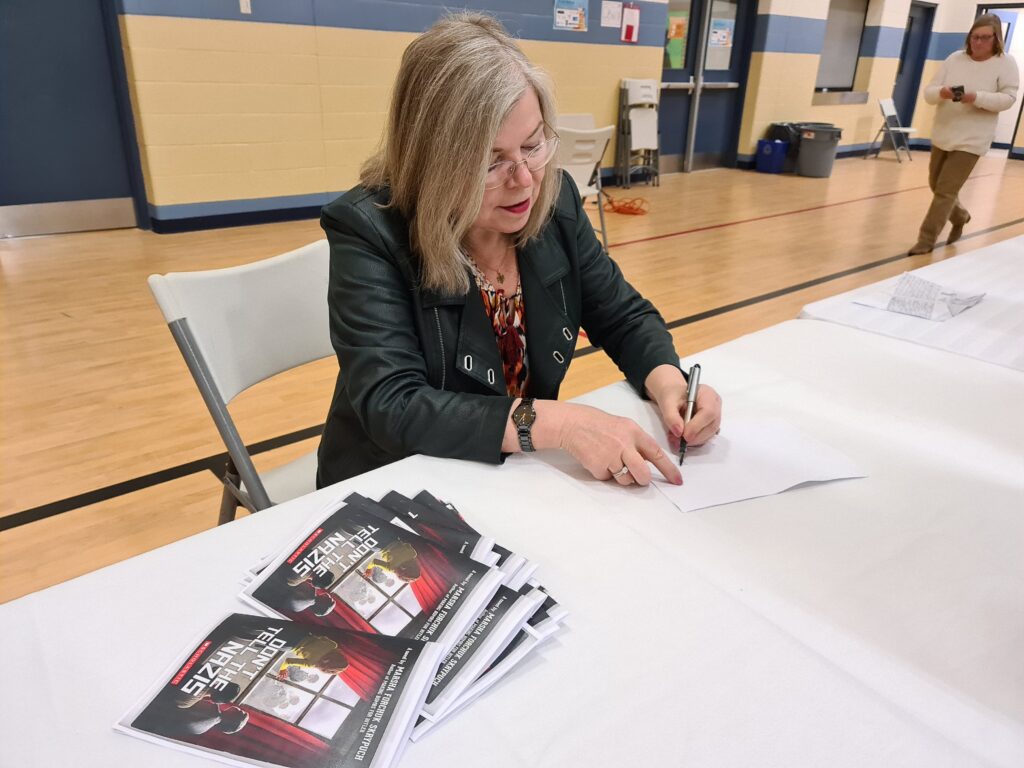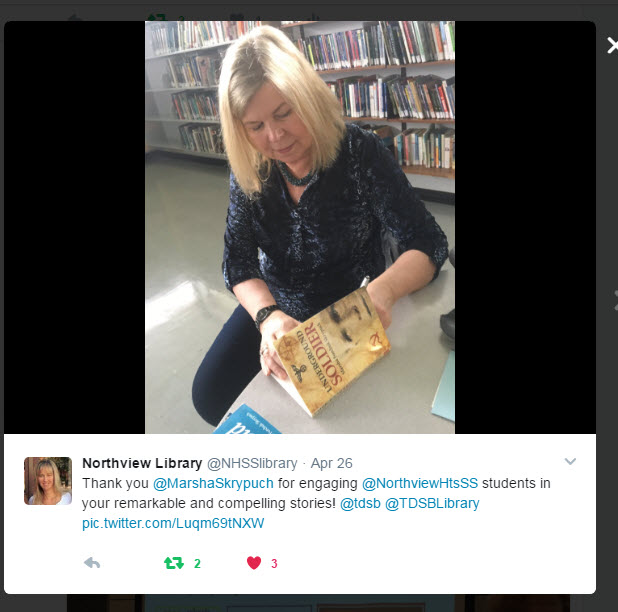
A reader emailed me today with a question that all writers get asked all the time, but this reader was so polite and thoughtful by the way he asked, that I’m sharing both Q and the A:
Q:
Dear Marsha,
I really enjoy your books. I’m currently reading “The War Below,” and I really admire your writing. You make your work come alive, and I can visualize every little bit in my head.
I have considered writing a novel of my own, and I’ve decided I am going to do it. But there is one problem, and that is that I cannot think of an idea.
Did you ever experience writer’s block? If you did, I was wondering how you thought of ideas. I would really love your help.
Thank you very much, and I love your work.
A:
Dear __,
A really good way of getting ideas is by talking to people about their lives. I asked a lot of questions of all of my grandparents, my parents and my husband’s parents. That kickstarted a lot of my stories. I also ask a lot of questions when I meet someone new. I want to know what it would be like to be them. To be a writer, you need to be able to step into another person’s (actually, many different people’s) shoes and figure out what it would be like to be them on a day to day basis.
You generally can’t just start asking a total stranger to tell you everything about them, but you’ll be amazed by what you learn by asking open ended questions and just listening. People who have lived through war or trauma often have a world of story bottled up inside but you can’t just come out and ask them. I like to get around it sideways. For example, if I’m talking to someone much older than myself or from a different cultural background, I ask them something about their past that will evoke a comfortable memory, like the first day of school, or a memorable celebration. Their anecdotes about that can give you ideas for other questions.
That’s not all there is to writing a book, but that’s a way to get some ideas. You may have noticed that a lot of writers are not big talkers, and that’s because they’re asking questions and listening.
I have other tips for writing on my website here:

